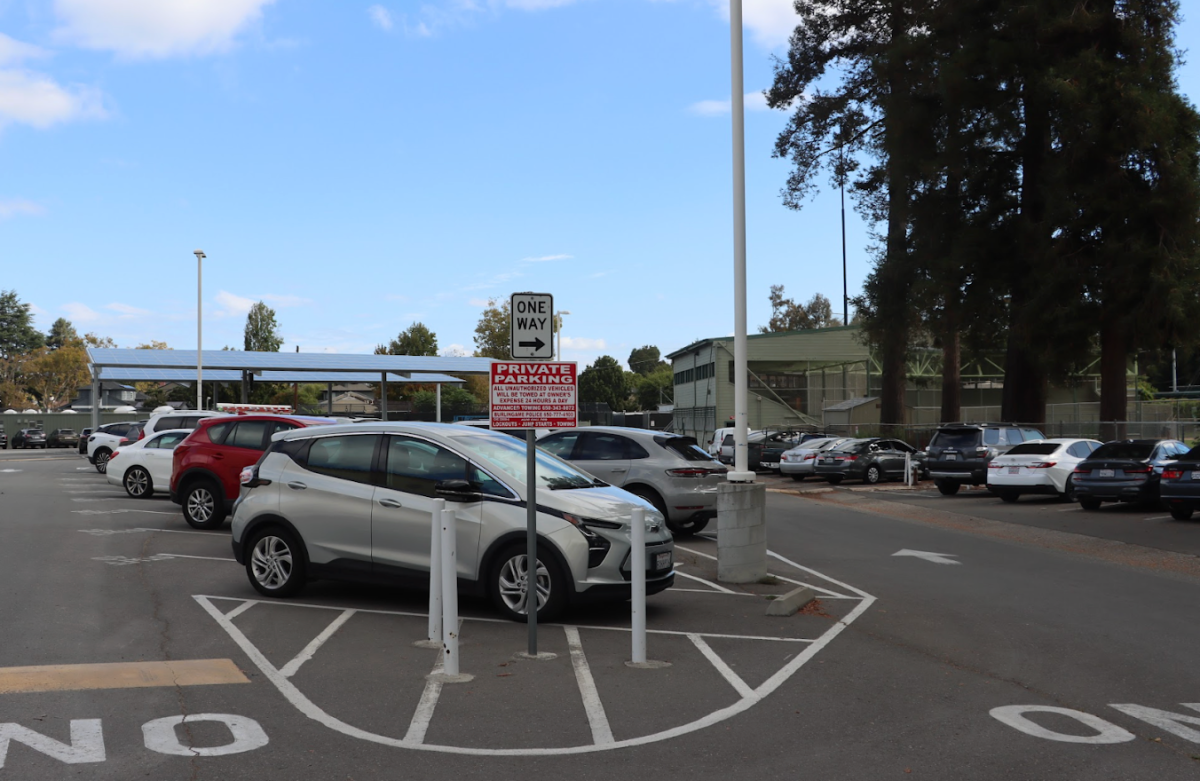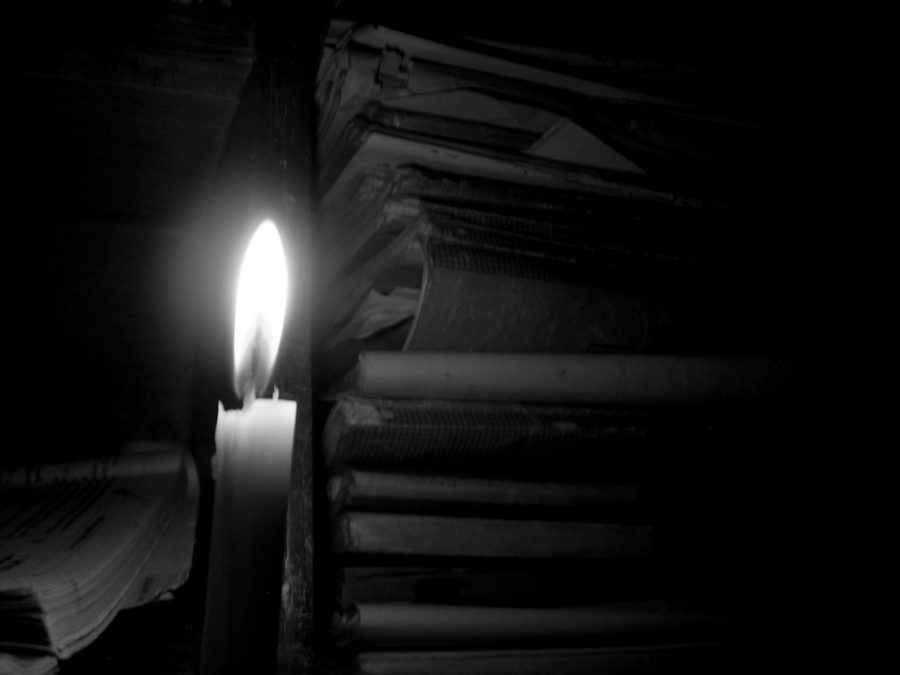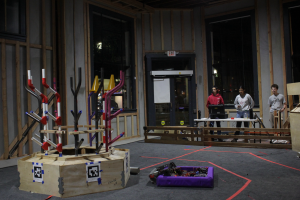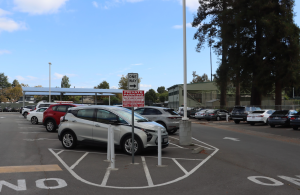Students suffer without power because of storm
Students and teachers in Burlingame were forced to resort to old-fashioned methods, such as burning a candle, during power outages caused by the bomb cyclone.
November 10, 2021
On Sunday, Oct. 24, a weather phenomenon known as a bomb cyclone hit the San Francisco Bay Area, resulting in flooding, debris and road closures throughout Burlingame. The cyclone included gale-force winds and an immense amount of rain.
Additionally, some Burlingame students suffered from power outages at their homes.
“I was worried all throughout Sunday afternoon because not all of [my homework] was finished,” sophomore Thinsang Tamang said. “I didn’t know when the power would come back, so I had no clue about when I would have the chance to turn in my assignments.”
Tamang’s power outage lasted for six hours, but other students, such as sophomore Landon Stobaugh, suffered from the absence of Wi-Fi for up to two days.
“I had a bunch of homework to do, and I had to use Google Docs for most of my work,” Stobaugh said. “But I wasn’t going to sit there and wait for the power to go on, so I moved into doing it with paper.”
In addition to creating obstacles for homework completion, the lack of power inconvenienced students who wanted to relax after finishing schoolwork.
“Normally, after I finished my work, I would use my phone or the TV for a break,” sophomore Deniel Marzoin said. “But, since I couldn’t do any of those, I went outside in the middle of the storm with my friends for four hours straight. I was that desperate.”
Since many students lost electricity for periods of time, they had to resort to other methods of lighting.
“We had a bunch of lamps and candles lit around the house,” sophomore Nate Teitelbaum said. “But I was more fortunate than others because I could still cook food, which I know others couldn’t.”
Kristin Berglund, a mathematics teacher, also made use of her at-home materials to deal with the weather.
“[My family and I] aimed a large flashlight at the ceiling in our living room so that the light would bounce off the ceiling and light up the entire room,” Berglund said. “[However], we did have to go through the fridge and throw out quite a bit of food because the power was out for basically 2 days.”
Seeing as students and teachers alike lost power, deadlines for homework and assignments were flexible.
“I didn’t mark students’ work late if students weren’t able to do or turn in their assignments on Canvas,” Berglund said. “I knew some of the students had their power out much longer than mine.”
Berglund was correct; however, many students had their power out longer than the end of Sunday. In fact, Pacific Gas & Electric Corp. reported that around 380,000 of their customers lost their power. However, only 250,000 people’s power went back on towards the end of Sunday. Students like Stobaugh had waited, under the stress of more homework, for their power to come on. Slowly, the power was restored, and Stobaugh’s first move wasn’t a celebration but to start on his homework.






































